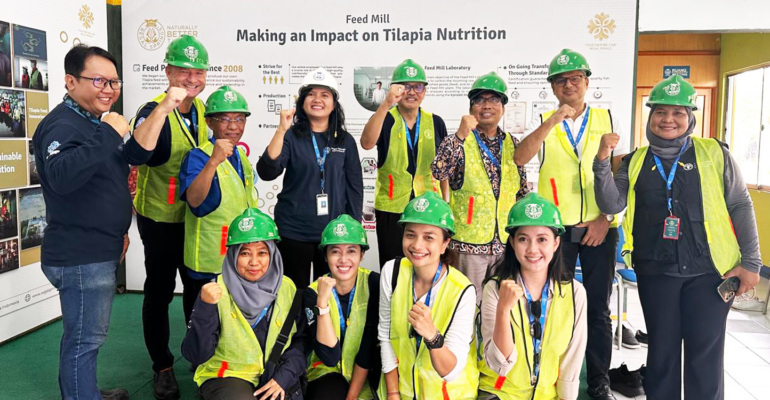Part of MBKM, FPIK IPB University, Regal Springs Indonesia and FAO Agree to Advance Integrated Tilapia Fisheries

The Faculty of Fisheries and Marine Science (FPIK) IPB University team was invited by PT Regal Springs Indonesia (RSI) to see and provide input related to the activities of an integrated tilapia fisheries company. This is the first step of cooperation in the development of blue food, especially tilapia.
The FPIK IPB University team consisted of the Dean (Prof Fredinan Yulianda), Vice Dean for Resources, Cooperation and Development (Prof Mala Nurilmala) and Coordinator for Research and Community Service (Prof Sulistiono).
On this occasion, the FPIK University team together with the Food and Agriculture Organization (FAO) visited tilapia hatcheries, feed mills, processing plants in Serdang Bedagai Regency, North Sumatra.
“FPIK IPB University is ready to contribute and cooperate by involving students as part of the Freedom of Learning – Independence Campus (MBKM) activities, research, service, and joint publications involving students and lecturers,” said Prof Fredinan.
During this visit, the FPIK IPB University team received information that in RSI, tilapia is bred semi-naturally in aquaculture areas. The results of production in the form of larvae and fingerlings are then bred in other ponds, then transferred to Lake Toba to be raised to a size of 1.3-1.5 kilograms.
RSI produces its own feed with high protein according to the growth needs of tilapia. RSI processes tilapia into loins and fillets that are exported overseas (mainly) and marketed domestically. All parts of the fish are utilised including the by-products.
The next visit was to a floating net cage (KJA)/farm in Toba Regency, North Sumatra. RSI is committed to paying attention to the environment including water quality through regular checks. Harvesting is done in advance by pulling the fish cages to the landing and retrieving the fish by pumping which is channelled to a refrigerated truck for transport to the processing plant.
President Director of RSI, Rudolf Hoeffelman welcomed the arrival of the FPIK IPB University and FAO teams. He believes this activity is the beginning of a good cooperation in realising blue food transformation. Through sustainable aquaculture, RSI contributes to the provision of high-protein food.
“The concept of blue food is getting special attention nowadays,” said Rajendra Aryal, FAO representative for Indonesia. Blue food has an important role in reducing hunger and malnutrition including stunting. (*/Rz) (IAAS/RUM)



